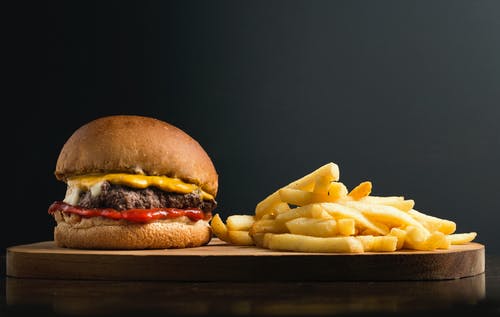Contents:
Be prepared to get your loved one into an evaluation to start treatment immediately if he or she agrees to the plan. Research your loved one’s addiction or substance abuse issue so that you have a good understanding of it. Make sure you choose a date and time when your loved one is least likely to be under the influence of alcohol or drugs. Contact national organizations, trusted online support groups or local clinics for treatment programs or advice.
Physicians separate alcohol addiction into three phases. Your friend drinks to excess on weekends or holidays. They wake up with a hangover, but they’re overall safe. Even if detoxification is not necessary, a formal, structured treatment program is vital for sustained abstinence. A health care professional or substance use counselor can help you and the person in need assess your options.
When many people think of interventions, they envision something confrontational — but that does not have to be the case. An intervention aims to show someone why they need to get into a Recovery program. You want to spotlight the depth of your friend’s problem in a way that resonates and makes them consider their actions.

Understand that alcoholism has dramatically affected this person’s life, in countless ways, including personally, professionally, financially, physically, mentally, and emotionally. Their bank account might be empty, they might owe legal fees to the court for DUIs, unpaid tickets, or bail. They might have lost their job as a result of their drinking, or damaged their relationship with you or any of their other friends or family members.
Coping When a Parent Has an Alcohol or Drug Problem
Prior to your talk, set up a time between just the two of you. It’s best to speak with your friend when they’re sober. It can be difficult watching someone you care about spiral out of control due to alcoholism.
Organizations like Al-Anon, Nar-Anon, and Alateen have networks all over the country and online to support those dealing with a loved one’s heavy drinking. Help the person address the problems that led to them drinking. If your loved one drank because of boredom, anxiety, or loneliness, for example, those problems will still be present once they’re sober. Encourage the person to find healthier ways of coping with life’s problems and rebounding from setbacks without leaning on alcohol. It may take several attempts to begin a real conversation with your loved one about their drinking. Give the person time and space to come to terms with your concerns and start to see the problem for themselves.

The amount of money they spend on alcohol concerns you. We may receive a commission if you follow links to BetterHelp. Get professional help from BetterHelp’s network of 30,000 licensed therapists.
Try to understand how substance misuse became a routine part of their life and ask how you can best support them. It’s natural to get frustrated with your loved one when you see them doing something that’s harmful to their health. For your own well-being, you may occasionally need to limit your contact if that person is actively using substances or alcohol. So how can you help someone who’s recovering from substance abuse disorder? Here are seven tips to keep in mind as you support someone in their recovery journey.
Speak Up: How To Approach A Friend’s Drinking Problem
Relapsing is very common among clients if they aren’t guided properly. As such, forms of therapy related to the matter must be included. The term detoxification is defined as a natural process in which the human body rids its systems of any waste products or toxins that are the result of long-term alcohol consumption. This treatment is accompanied by medication, counseling and medical observation.
This information will be good to have if you decide to talk with other family members about the situation, seek advice from a professional, or speak directly with the person. However, don’t feel you need an exhaustive picture of the problem before. Seek professional help on how to approach your loved one about their substance use so they can get the proper treatment. Assistance in Recovery is one resource in our community that offers advocates who can help coach you on the best ways to do this.
“Fortunately, we now have new medications that can help alcohol addiction in combination with counseling or 12-step programs,” Murtagh-Schaffer says. Have calm, rational responses prepared for each reason your loved one may give to avoid treatment or responsibility for behavior. Offer eco sober house cost support that makes it easier to engage in treatment, such as arranging child care or attending counseling sessions with your loved one. Be wary of treatment centers promising quick fixes, and avoid programs that use uncommon methods or treatments that seem potentially harmful.
As with most problems, alcohol abuse isn’t impossible to beat. Before you begin asking questions like “how to help an alcoholic,” it is first important to determine whether or not a person truly has a drinking problem. Let’s be honest, many friends and families of alcoholics become frustrated with their loved one’s behavior. While this is completely normal, it is vital that you maintain a loving and supportive attitude while discussing your friend’s alcoholism. Before talking to your friend about their excessive drinking, it’s important to understand that they may not realize they have a problem. On the other hand, some people struggling with alcohol abuse may deny they have a problem entirely.
Navigating Social Life as a Non-Drinker
Explain how their drinking could be affecting their health and how it will continue to cause harm. Express your concern for their well-being as https://sober-house.net/ someone who cares for them. Find out as much as you can about the effects of alcohol and the signs of alcohol misuse so you have facts on hand.
Again, everyone needs to come from a place of caring, rather than see this as an opportunity to bully, accuse, or vent their anger at the person with the drinking problem. Use alcohol to self-medicate a mental health problem such as anxiety, depression, or bipolar disorder. Even in those cases, the events that led to dire financial straits are from alcohol abuse. By providing money or other financial assistance, even bail money or child support, you prevent alcohol abusers from hitting a genuine bottom. It’s not easy to admit that your love, money, dedication, loyalty—you name it—can’t help an alcoholic loved one.
- While individuals will experience AUD in different ways, certain symptoms are more common than others.
- Movies, books, and magazines often portray people who “hit bottom” before they can be helped.
- Talk to other family members or friends and encourage everyone to get on the same page.
As someone who cares for the alcoholic, you have an important influence over his or her life. While you cannot save them yourself, you can help them on their journey. Here’s how to help an alcoholic acknowledge their problem and find success in recovery. It’s painful to watch someone you love lose control.Alcoholismis no easy disease to bear, whether you’re struggling with the addiction yourself or you’re watching from the sidelines. You may begin to lose hope that the addiction will ever end.
This article takes a detailed look at red wine and its health effects. Moderate amounts are very healthy, but too much can have devastating effects. Some agencies and organizations offer treatments at no cost. By submitting this form you agree to terms of use and privacy policy of the website. Again, this can cause your friend to become defensive and be much less willing to hear what you’re saying.
Steps To Take If An Alcoholic Or Addict Refuses Treatment
Drugs and alcohol interfere with normal brain functioning. At some point, changes happen in the brain that can turn drug and alcohol abuse into addiction. An alcohol use disorder can be easy to hide, especially for individuals who have been drinking and struggling with alcohol use disorder for some time. Individuals often overlook warning signs that someone has a dependency or addiction to alcohol because they don’t consider things like binge drinking to be dangerous. You may think that you need to choose just the right program for your family member and if you don’t, treatment will fail. But experts believe that any number of programs can lead to success – if the person is willing to accept help from others and invest energy in working on recovery.
It shows that substance use has become more important than the problems it causes. Someone who is unwilling to discuss the issue or consider whether there might be a problem is a strong indicator that a problem exists. choices sober living I think your drinking may be affecting your work, and I would hate to see you lose your job. Benzodiazepine Abuse Causes, symptoms, and treatment. Drug Overdose Symptoms Know when to seek medical attention.
Offer Support
AUD is a difficult condition, and it can be hard to watch your loved one suffer through an addiction. However, enabling an alcohol addiction can prevent your loved one from seeking treatment. Sustaining an unhealthy alcohol addiction can be very expensive, and this may lead a person with AUD to engage in dangerous behaviors to keep purchasing alcohol. They may always be short on money, pawn valuables, or even take money and belongings from loved ones to purchase more alcohol. One of the most dangerous effects of alcohol is the neurological impacts.
After a screening, some people may need a brief intervention, usually done by a health professional. During a brief intervention, people receive feedback on their substance use based on the screening results. Frequently, people are asked to cut back or stop their use.
Mention the word “treatment” in relation to substance use and many people think of long-term residential facilities or detox. In fact, treatment includes both of these options — and a variety of others. Experiencing feelings of fear, worry and anger are understandable and normal for someone on the sidelines trying to support a loved one. As with any other chronic illness, the more informed you are the better you will be able to support them.

